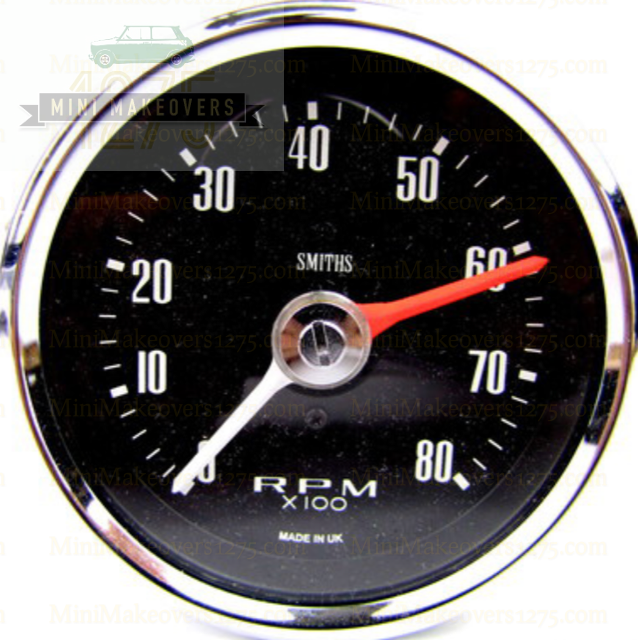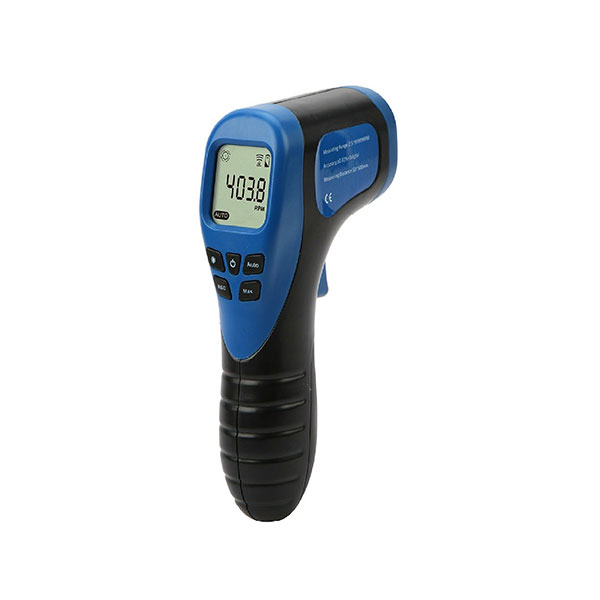Leading Reasons Why Every Driver Needs a High-Quality Tachometer
Key Reasons That Having a Tachometer Is Vital for Maintaining Engine Health And Wellness and Efficiency
In the world of automobile upkeep, the relevance of a tachometer can not be overemphasized - tachometer. This modest yet critical instrument plays a pivotal duty in the upkeep of an engine's wellness and efficiency. By supplying real-time information on engine rate and RPM levels, a tachometer provides very useful insights that straight influence the performance and long life of the engine. From protecting against over-revving to optimizing fuel intake, the applications of a tachometer are multifaceted and crucial for any kind of vehicle proprietor or fanatic. Why is this seemingly basic tool so essential? Allow's discover the crucial reasons behind its pivotal duty in preserving engine health and performance.
Stopping Engine Over-Revving

To safeguard the engine from potential damage, it is crucial to implement measures that stop over-revving, a practice that can bring about costly repair work and minimized engine life expectancy. Over-revving occurs when the engine's rotational speed surpasses the optimum restriction established by the producer, triggering excessive stress and anxiety on inner elements such as pistons, valves, and attaching rods. This extreme pressure can result in mechanical failings, consisting of bent valves, damaged pistons, and also tragic engine failure.
One reliable action to protect against over-revving is the installment of a rev limiter. A rev limiter is a gadget that manages the optimum RPM (changes per minute) of the engine by either reducing off gas circulation or trigger to the engine when the pre-set restriction is reached. Furthermore, informing vehicle drivers and operators on the significance of checking engine RPM via the tachometer can aid avoid unintentional over-revving. Routine maintenance checks to make sure the engine remains in optimum condition can additionally help in preventing over-revving occurrences and prolonging the engine's life expectancy. By embracing these preventative procedures, the risk of engine damage because of over-revving can be substantially minimized.
Maximizing Fuel Consumption
Efficient fuel usage plays a critical role in making best use of the performance and sustainability of an engine. tachometer. Enhancing gas consumption not only aids in reducing functional prices but likewise lessens the environmental impact of vehicle exhausts. By using a tachometer to keep track of engine speed and adjust driving routines as necessary, vehicle drivers can attain far better fuel performance
Preserving a stable pace and staying clear of unexpected velocities and slowdowns can significantly improve gas economy. In addition, appropriate gear option based on the tachometer readings makes sure that the engine runs within its ideal range, causing a lot more reliable fuel click resources burning.
Consistently keeping an eye on the tachometer can also aid determine any inadequacies or mechanical issues that might be affecting fuel consumption. An abrupt rise in fuel use without a corresponding change in driving behaviors could show an issue that requires interest.
Tracking Engine Wellness
Keeping track of engine wellness is crucial for guaranteeing ideal performance and durability of the car. By utilizing a tachometer to keep an eye on engine speed, motorists can find abnormalities that might show possible concerns with the engine. A tachometer gives real-time information on engine changes per minute (RPM), allowing chauffeurs to determine any type of uncommon spikes or decrease in RPM that can signify troubles such as misfires, damaged elements, or engine getting too hot.

Consistently keeping track of engine wellness through using a tachometer allows chauffeurs to address concerns immediately prior to they escalate and trigger considerable damage. Finding a reduction in RPM could indicate gas shipment problems or a clogged air filter, while an abrupt rise in RPM might aim to issues with the transmission or exhaust system. By remaining cautious and receptive to changes in engine performance, drivers can prevent costly repairs and guarantee the overall wellness and effectiveness of their automobile.
Expanding Engine Lifespan
Making certain the long life of an engine calls for attentive upkeep methods and alert tracking of essential performance indications. Prolonging an engine's lifespan is critical for minimizing overall lorry maintenance prices and preventing unanticipated failures. A tachometer plays a substantial function in this aspect by providing real-time information on engine rate, my review here enabling drivers and technicians to make enlightened decisions to avoid extreme damage.

Moreover, routine upkeep based upon tachometer readings, such as timely oil adjustments and ignition system replacements, can dramatically contribute to extending the engine's longevity. On the whole, integrating a tachometer right into routine engine monitoring methods is crucial for preserving the engine's health and pop over to these guys wellness and performance over the long term.
Saving Cash on Services
A tachometer aids in keeping an eye on the engine's RPM (transformations per minute), enabling vehicle drivers to run within the recommended range. By staying within these optimal RPM degrees, too much stress on the engine can be avoided, reducing the chance of expensive repair work due to overworking the engine.
In addition, by utilizing the data from a tachometer to practice smooth velocity and deceleration, vehicle drivers can extend the life-span of their car's components, inevitably saving cash on upkeep and replacements. On the whole, the insights given by a tachometer encourage motorists to make educated decisions that can avoid unnecessary deterioration on the engine, resulting in substantial expense financial savings in the future.
Conclusion
Finally, a tachometer plays an essential duty in maintaining engine wellness and effectiveness by avoiding over-revving, optimizing gas intake, keeping an eye on engine health, prolonging engine lifespan, and conserving money on repairs. It is a crucial tool for making sure that the engine runs within risk-free limits and carries out at its ideal, inevitably contributing to the long life and general efficiency of the automobile.